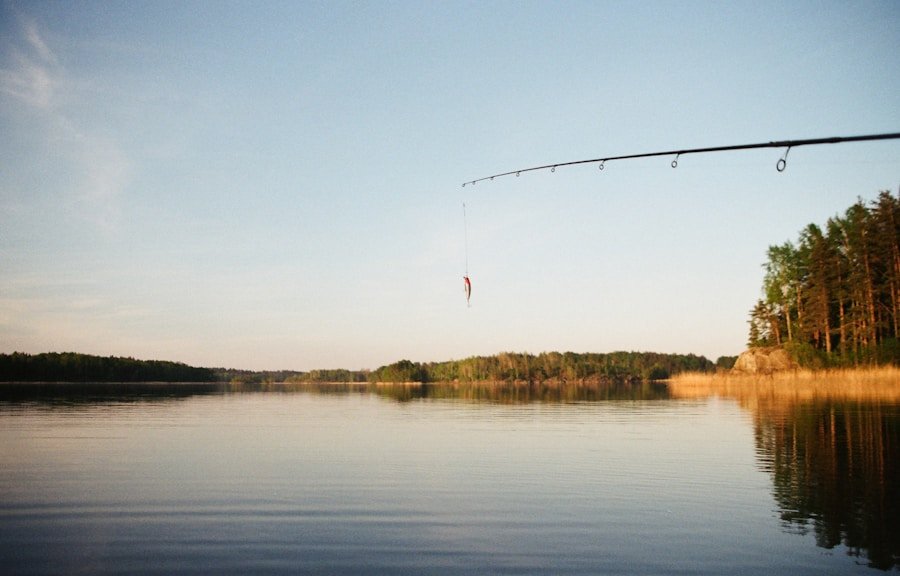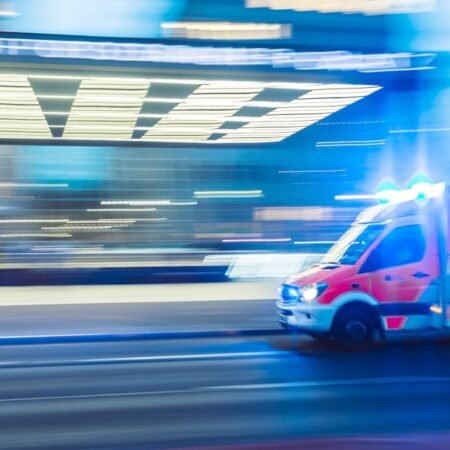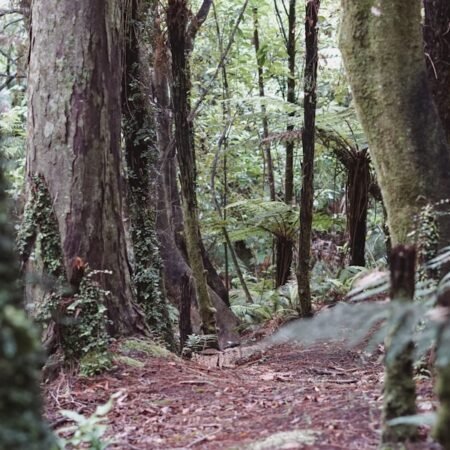Camping is a widely enjoyed outdoor pursuit that enables individuals to reconnect with nature and temporarily leave behind the stresses of daily life. Nevertheless, venturing into the wilderness also entails inherent risks, including the possibility of medical emergencies. Regardless of one’s level of camping experience, it is crucial to be adequately prepared for any situation that may arise.
This preparation should include possessing a fundamental understanding of common medical emergencies that can occur while camping, as well as knowing how to respond to them effectively.
Key Takeaways
- Always carry essential first aid supplies when camping to be prepared for medical emergencies in the wilderness.
- Cuts, scrapes, and burns are common injuries while camping, so knowing how to properly deal with them is crucial.
- Insect bites and stings can be a nuisance while camping, but knowing how to handle them can prevent further complications.
- Heat-related illnesses can be serious in the wilderness, so it’s important to recognize and treat them promptly.
- Being prepared for allergic reactions and anaphylaxis is essential when camping away from civilization, so knowing how to manage them is crucial for safety.
Understanding the Risks: Common Medical Emergencies in the Wilderness
Common Injuries in the Wilderness
One of the most common issues campers face is cuts, scrapes, and burns. These injuries can happen while hiking, cooking over an open flame, or simply navigating through rough terrain.
Insect-Related Hazards
In addition to these minor injuries, campers also need to be prepared for insect bites and stings, which can cause discomfort and allergic reactions in some individuals.
Heat-Related Illnesses
Furthermore, heat-related illnesses such as heat exhaustion and heatstroke are also a concern, especially during the hot summer months. By understanding these risks, campers can better prepare themselves for potential medical emergencies and take proactive measures to prevent them from occurring.
Essential First Aid Supplies for Camping Trips
When it comes to camping first aid, having the right supplies on hand can make all the difference in an emergency situation. A well-stocked first aid kit is essential for any camping trip and should include items such as bandages, gauze pads, adhesive tape, antiseptic wipes, tweezers, scissors, and a thermometer. Additionally, it’s important to have basic medications such as pain relievers, antihistamines, and anti-inflammatory drugs on hand.
For more serious injuries, a camping first aid kit should also include a splint, a tourniquet, and a CPR mask. By having these essential supplies readily available, campers can quickly respond to medical emergencies and provide necessary care until professional help arrives.
Dealing with Cuts, Scrapes, and Burns in the Great Outdoors
| Medical Emergency | Response |
|---|---|
| Bleeding | Apply direct pressure to the wound and elevate the injured area |
| Burns | Cool the burn with cold water and cover with a sterile bandage |
| Fractures | Immobilize the injured area and seek medical help |
| Snake Bites | Keep the victim calm and seek immediate medical attention |
Cuts, scrapes, and burns are common injuries that can occur while camping, but they can be effectively managed with the right first aid techniques. When dealing with cuts and scrapes, it’s important to clean the wound thoroughly with antiseptic wipes and apply a sterile bandage to prevent infection. For minor burns, campers should run cool water over the affected area for at least 10 minutes and then apply a burn cream or aloe vera gel to soothe the skin.
In more severe cases, such as deep cuts or extensive burns, it’s crucial to seek professional medical attention as soon as possible.
How to Handle Insect Bites and Stings While Camping
Insect bites and stings are another common issue that campers may encounter while spending time in the wilderness. To manage these situations effectively, it’s important to remove any stingers or insect parts from the skin as soon as possible. This can be done using a pair of tweezers or by scraping the area with a credit card.
After removing the stinger, campers should clean the affected area with soap and water and apply a cold compress to reduce swelling and discomfort. For individuals who are allergic to insect venom, it’s crucial to carry an epinephrine auto-injector (such as an EpiPen) and know how to use it in case of an emergency.
Recognizing and Treating Heat-Related Illnesses in the Wilderness
Heat-related illnesses are a serious concern for campers, especially during the hot summer months. Heat exhaustion and heatstroke can occur when the body is unable to regulate its temperature effectively, leading to symptoms such as dizziness, nausea, rapid heartbeat, and confusion. To prevent these conditions from occurring, campers should stay hydrated, take frequent breaks in shaded areas, and wear lightweight clothing that allows for proper ventilation.
If someone begins to show signs of heat-related illness, it’s important to move them to a cooler area, remove excess clothing, and provide them with cool fluids to drink. In severe cases of heatstroke, it’s crucial to seek immediate medical attention.
Managing Allergic Reactions and Anaphylaxis Away from Civilization
For individuals with known allergies, managing allergic reactions while camping is essential for their safety. Common allergens such as bee stings, certain plants, and food items can trigger severe allergic reactions that require immediate intervention. Campers with known allergies should carry their prescribed medications (such as antihistamines or epinephrine auto-injectors) at all times and inform their camping companions about their condition.
In the event of an allergic reaction or anaphylaxis, it’s crucial to administer the appropriate medication promptly and seek professional medical help as soon as possible.
Wilderness First Aid: Preparing for and Responding to Medical Emergencies while Camping
In addition to having the right supplies on hand, campers should also be prepared to respond effectively to medical emergencies while in the wilderness. This includes having a basic understanding of first aid techniques such as CPR, wound care, and splinting. It’s also important for campers to know how to recognize the signs of serious medical conditions such as heart attacks, strokes, and seizures.
By taking a wilderness first aid course before embarking on a camping trip, individuals can gain the knowledge and skills needed to respond confidently in emergency situations. Additionally, having a communication plan in place is crucial for contacting emergency services if needed. In conclusion, being prepared for medical emergencies while camping is essential for ensuring a safe and enjoyable outdoor experience.
By understanding the common risks associated with camping and having the right supplies and knowledge on hand, campers can effectively respond to medical emergencies and provide necessary care until professional help arrives. Whether you’re an experienced outdoor enthusiast or a novice camper, taking proactive measures to prepare for potential medical emergencies is crucial for staying safe in the great outdoors.
FAQs
What are some common medical emergencies that can occur while camping?
Some common medical emergencies that can occur while camping include cuts and scrapes, burns, insect bites, allergic reactions, sprains and strains, and heat-related illnesses.
What should be included in a camping first aid kit?
A camping first aid kit should include items such as adhesive bandages, gauze pads, adhesive tape, antiseptic wipes, tweezers, scissors, a thermometer, pain relievers, antihistamines, and a first aid manual.
How can one prevent medical emergencies while camping?
To prevent medical emergencies while camping, it is important to be prepared by packing a well-stocked first aid kit, staying hydrated, using insect repellent, wearing appropriate clothing and footwear, and being aware of potential hazards in the camping area.
What should one do in case of a medical emergency while camping?
In case of a medical emergency while camping, it is important to stay calm and assess the situation. Administer first aid if necessary and seek help from nearby campers or park rangers. If the situation is serious, call emergency services for assistance.













